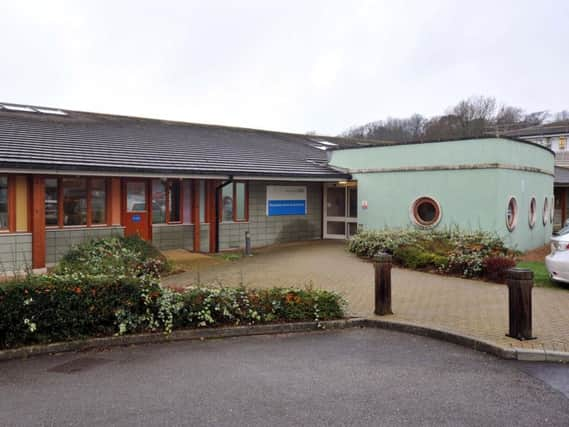Hastings woman posed 'high risk' to self, inquest hears


Sabrina Michelle Walsh, 32, of Blackman Avenue was found dead in the Woodland Mental Health Unit at The Ridge in Hastings on October 31 last year. A pathologist found she had died by hanging.
An inquest into her death, which is being held before a jury at Muriel Matters House in Hastings this week, heard how she had been transferred to the unit from a 'place of safety' centre in Eastbourne earlier the same day. She had been held at the specialist centre under police mental health powers after she was detained after an incident at the Conquest Hospital the night before.
Advertisement
Hide AdAdvertisement
Hide AdPathologist Dr Ian Hawley said a postmortem examination showed Walsh had died by hanging. However he also noted the results of a toxicology report, which he said showed Walsh had 'very high' levels of morphine in her blood at the time of her death.
Walsh's mother, Christina Lavers, told the inquest she had accompanied her daughter to the Conquest after becoming concerned by a deterioration in her mental health. Ms Lavers told the inquest that her daughter had a long history of mental illness and had been suffering from increased paranoia in the days before she was taken to hospital.
Earlier in the day the inquest heard written evidence from Walsh's GP, Dr Titus Bradley, which said she had made numerous and well-documented attempts to kill herself on previous occasions and had been treated as an inpatient at a variety of units in Sussex, including the Woodland Mental Health Unit.
Ms Lavers said her daughter had been increasingly agitated while at the Conquest and that police had been called after her daughter began hurting herself and acting erratically.
Advertisement
Hide AdAdvertisement
Hide AdOn arrival, police officers detained Walsh under section 136 of the Mental Health Act and took her to a specialist centre at Eastbourne DGH, where she was kept under observation by nurses. While at the centre she was given a mental health assessment by social worker Athina Pavlou and two psychiatric doctors. They concluded that Walsh should be detained for treatment.
Giving her evidence Ms Pavlou said Walsh - who she had assessed on a number of previous occasions - told her she planned to kill herself and gave details of what she wanted to do.
While Ms Pavlou said she and the doctors were satisfied that Walsh should be detained, she said she could not complete this process that night as no mental health ward bed was available within the Sussex Partnership NHS Foundation Trust. As a result Walsh remained at the Eastbourne centre overnight.
When asked by the family's lawyer Tom Stoate, Ms Pavlou agreed that Walsh had posed a 'high risk of suicide' at this time. This view was shared by Barry Davidson, another social worker who completed the assessment after a bed was found at Woodland.
Advertisement
Hide AdAdvertisement
Hide AdJoanne Skerl and Alison Shields, who work as mental health nurses at Eastbourne DGH, told the inquest Walsh had seemed calm the following morning but that an alarm was raised after she made an attempt to strangle herself . The nurses said after Walsh was stopped from hurting herself she became erratic and began lashing out at staff. She was given sedative injections in order to calm her down, Ms Shields said. Details of this incident and the sedatives were added to Walsh's notes.
After this incident Ms Shields, who was the nurse in charge of the 'place of safety' centre, said she made a recommendation that Walsh be treated at an 'intensive' mental health care unit, although this recommendation was denied following a screening assessment. The inquest heard how such a unit would have had a higher staff-to-patient ratio than Woodland, where she was transferred on the afternoon of her death.
The inquest continues.
For confidential support, call the Samaritans on 116 123. This service is free and lines are open 24 hours a day.